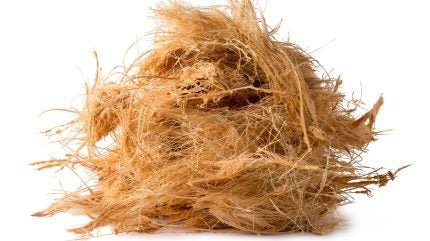
Woodfree, a UK-based company, has joined forces with Bangor University’s Biocomposites Centre to develop Eco-Pulp, cellulose fibres extracted from coconut husks.
The partners are converting a previously underutilised coconut husk solution into a low-cost feedstock, which can be used for producing low-cost fibres.
These fibres can be used for a range of applications, including paper and packaging materials.
Bangor University Biocomposites Centre director Dr Rob Elias said: “Coconut is grown all around the world for its flesh and oil, and this leaves behind a husk that’s more often than not left to rot or in the worst-case scenario, burnt.
“This can create all kinds of problems in the regions where coconut is grown such as Sri Lanka and India, including those associated with human health, such as malaria. We also know that we are still overdependent on plastic packaging and the harm this does to our planet.”
Woodfree has been exploring non-wood materials that could serve as sustainable alternatives over the past few years.

US Tariffs are shifting - will you react or anticipate?
Don’t let policy changes catch you off guard. Stay proactive with real-time data and expert analysis.
By GlobalDataThe company aims to address the global issue of deforestation linked to paper production for packaging.
Its founders, Gurpreet Singh and Arjundeep Singh, started their research at home and later sought the expertise of Bangor University in Wales, UK, to scale up their project.
The collaboration aims to leverage the university’s knowledge in biobased packaging alternatives to create a viable commercial product that can be scaled.
Gurpreet Singh said: “Together, we’ve processed something in the region of just under a ton of waste coconut husks, making them into fibre and then assessing this pulp in terms of strength, durability, mouldability, reaction to water and stackability – all very important practical considerations in making the product ready for the market.
“We’re now at the stage where we’re producing prototype packaging such as trays and punnets that can be used to showcase what could be produced using these fibres.”



